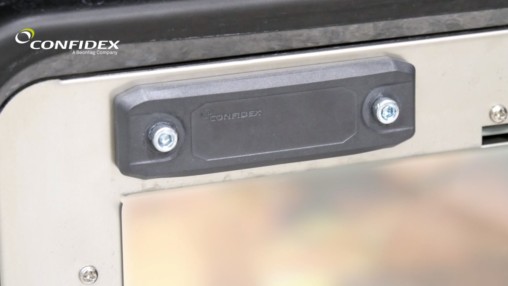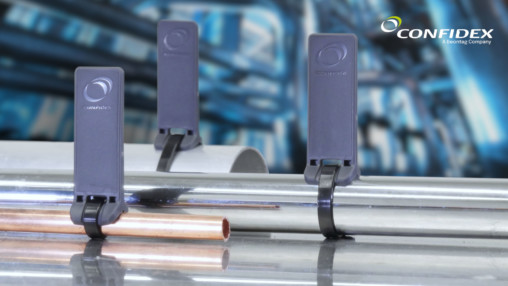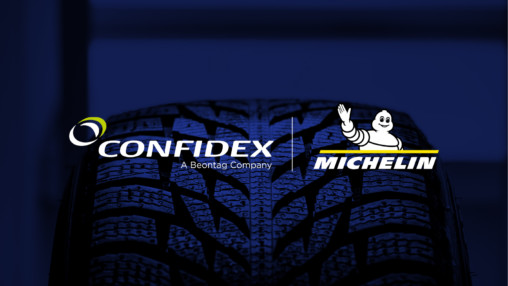Gojek Super App provides access to some 20 different services, many of which involve delivering people, goods or food. This makes Gojek-branded motorcycle riders a common sight in Southeast Asia. This massive user base makes managing the inventory and distribution of the helmets and jackets a bit of a challenge.
“What we needed was a full visibility of assets throughout the supply chain – from factory to distribution to end user”, says Nathan Roestandy, CEO of Zulu – the wearable tech and apparel R&D company responsible for supplying the Gojek riders and users with the helmets and jackets. “This reduces the challenges concerning lost inventory, tracing the supplier and user authorization.”
Advanced integration
A crucial factor in a successful project is the system integration. The customer already has an advanced asset management system and the RFID helmet/jacket tags must work seamlessly with that. In this field, Zulu has plenty of expertise on.
With the support from PT Elektrodata Sistem Integrasi, Confidex Reseller in Indonesia, Zulu is ensuring that all jackets and helmets are tagged at source before delivering to warehouses and distribution warehouses countrywide.
“I first suggested to Gojek to use RFID technology and am glad to be a part of the implementation process” says Yusuf Syaid, CTO of Zulu. “To work on an idea from beginning, guiding implementation and then running it in operations is very rewarding. It’s a very innovative way to manage the inventory of this kind of scale – and a first of its kind in Asia”,
“We are proud to be a part of enabling the ease of adoption for RFID technology”, Yusuf Syaid continues. “We at Zulu have designed and built RFID based subsystems, one of which is an IoT-based production monitoring system, for both helmet and jacket productions. I can track the daily production process per assembly line per factory on my phone. Another important element was that we created all the data structures to encode into the RFID tags.”
The Confidex solution
As a global RFID tag specialist, Confidex is known for a broad product portfolio and tags made to withstand heavy use and tough conditions.
“Not many companies can offer a pre-existing product for such a custom application”, says Sales Director, APAC, Edward Lu from Confidex. “Confidex could because we have done similar applications in the past, and this saved a lot of time and money for the customer.”
Besides the broad selection, Confidex tags have other advantages. “First of all, quality and durability”, says Edward Lu. “The tags are used in the field and worn every day, and Confidex tags are known to endure this type of harsh environment.”
Another Confidex advantage is the advanced internal design. “It’s one of the best in the market, allowing the tag to be read effectively throughout the helmet/jacket lifetime”, Mr. Lu adds.
From 15 minutes to 3 seconds
Yusuf Syaid, Zulu CTO, is impressed with the way the RFID technology offers real-life benefits. “Before, there was a lot of losses”, he says. “Now there is full 1:1 traceability in the system, with a proof of manufacturing and proof of delivery.”
Another practical example is checking the contents of a box of 50 jackets. “Before, it took 15 minutes with a paper clipboard, and there was a big chance of human error”, Yusuf Syaid explains. “Now, it takes 3 seconds, without even opening the box!”
The new possibilities
Besides more efficient inventory management and distribution, the RFID tags enable other new possibilities as well.
“The phase two will include efficient tracking in the field to create and maintain a good brand image”, Nathan Roestandy, Zulu CEO says. “Worn out outfits are not good for the brand, so they will be replaced in a timely manner.”
Another future application will be attendance taking of Gojek riders in company events, where a RFID gantry can be set up to quickly capture data.
Flexible and cost-effective
The global rise of the platform economy will no doubt open other innovative applications for RFID tags. This Gojek case shows how the combined expertise from different fields can provide fast, cost-effective and flexible solutions to specific needs.
“RFID technology is more inexpensive than people often perceive”, Yusuf Syaid confirms. “And while not every small office has the RFID system, the jackets have QR codes as well, so there is no need for two databases. Flexibility is the key!”



